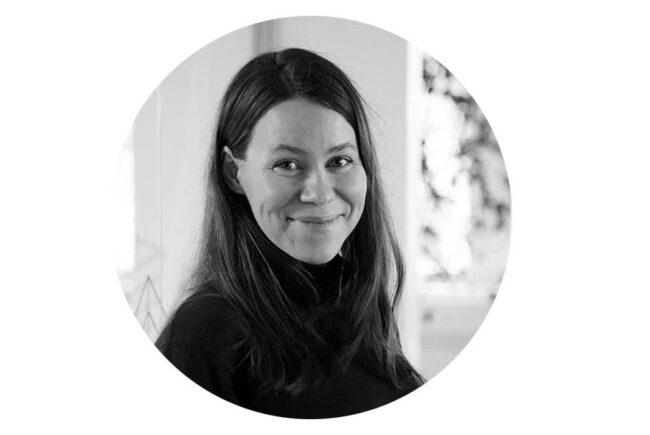

Life is full of things that catch us off guard. To deal with change, we need flexibility, resilience and an open mind – all things that adult education can help provide. The text is an editorial written for issue 2/2020 on Adult Education and the Unexpected.
I thought I was doing OK in lockdown, all things considered. I tried to regularly chat with friends, put on cleanish clothes every day and, at times, even genuinely enjoyed this new, quietened-down version of life.
And then my bus to the city centre was cancelled and I found myself sobbing on the sidewalk.
I guess you could say this trivial incident was the straw that broke the camel’s back. Despite being mostly sheltered from the effects of the pandemic – I live in a wealthy country; I have a home and a job I can do remotely – I notice that the uncertainty of the current situation has been getting under my skin. There is a question looming over my head, refusing to disappear: what is going to happen to us?
We as humans crave security. In a study mapping people’s stress response to unpredictable events, volunteers played a computer game overturning rocks that might have snakes hidden under them. If a snake appeared, they were given a painful electric shock.
Uncertainty is even more stressful than knowing something bad is going to happen.
The main finding of the experiment was that stress levels reached their peaks when uncertainty was at its highest, meaning when people had no clue about whether they were about to get a shock or not. In other words, uncertainty is even more stressful than knowing something bad is going to happen.
And yet life is full of things that are often hard or impossible to predict. An accident, loss of a job or sudden breakdown of an intimate relationship are all things that often catch us off-guard.
2020 HAS ALREADY PROVEN TO BE A YEAR characterised by unpredictability and drastic change. It is becoming increasingly clear that the ripples of the Covid-19 crisis will continue to rock the world for a while and might reach wider than we are yet to fully comprehend.
This much is clear: we will all need to adapt to new ways of thinking, living and learning. To reflect this, we deviated from existing plans and decided to name our second issue of the year “Adult Education and the Unexpected”.
How can lifelong learning help people deal with unpredictable events in life?
In this issue, we wanted to explore adapting to change and disruption: how can adult education best respond to change and provide access to learning in uncertain times? What kind of effects do unexpected situations have on individuals and communities, and how can lifelong learning help people deal with unpredictable events in life?
One way to deal with the unexpected is to improvise, and in the feature article we examine how applied improvisation can help people be more creative, more collaborative, more confident and more responsive to change.
We also visit the Syrian organisation Multi Aid Programs that trains teachers in the excruciatingly uncertain reality of a refugee camp, and we talk to a neuroscientist about how fear affects learning (not as straightforward as one might think!). Three environmental specialists reflect on what climate education could look like in the post-pandemic world, and we take a closer look at the great unknown: in Germany, increasingly popular “Last Aid Courses” are training people to prepare for death.
A CRISIS CAN HAPPEN TO ANYONE BUT, in many cases, it hits people who are already in disadvantaged positions disproportionately hard. This has been particularly true during the coronavirus pandemic, which has been widening social and economic divisions across the globe.
The global outbreak is also exacerbating inequalities in learning. In this issue, we asked several adult education professionals around Europe about the effects of the pandemic, and they all shared the same concern: those already educationally vulnerable are now at a much higher risk of being left behind. This is particularly true in cases where the governance and financing structures of adult education do not allow for a continuation of outreach activities.
Despite all the challenges, what has really stayed with me from talking to ALE professionals from different countries is a sense of hope and resilience. As Niamh O’Reilly from Ireland’s national adult learning organisation puts it, it is in the DNA of non-formal adult education to respond to change. And in times like these, this flexibility and adaptability will be needed more than ever.
IT IS GOOD TO REMIND OURSELVES that, although uncertainty is a part of life, we are not stuck in a computer game, simply turning rocks to find the snakes that will inevitably appear.
No one knows exactly what will happen to us.
Mark Lilla, a professor of humanities at Columbia University, writes that despite all the forecasting and speculation, the post-Covid future doesn’t exist yet. It will exist only after we have made it. Therefore, “we should ask only what we want to happen, and how to make it happen, given the constraints of the moment.”
As tempting as it is to try and predict the future so that we can better prepare ourselves for it, we can’t, at least not fully.
No one knows exactly what will happen to us. But that also means we all have power over what the world will look like in five or 50 years.
Author







